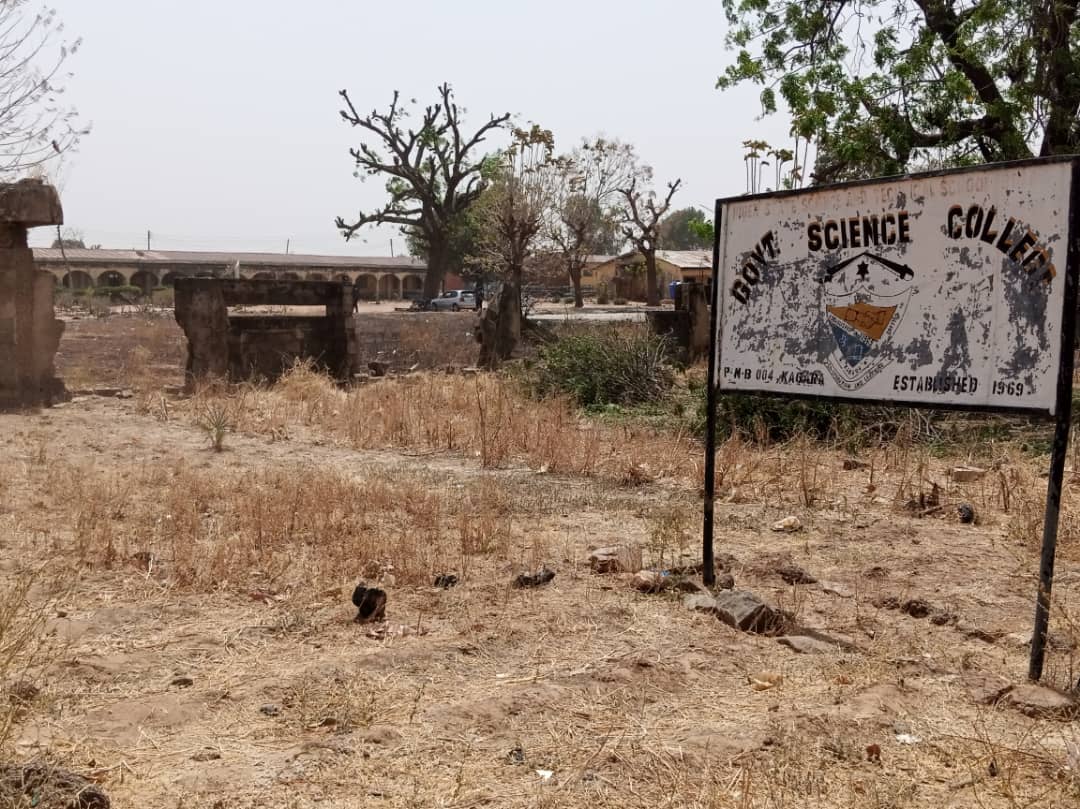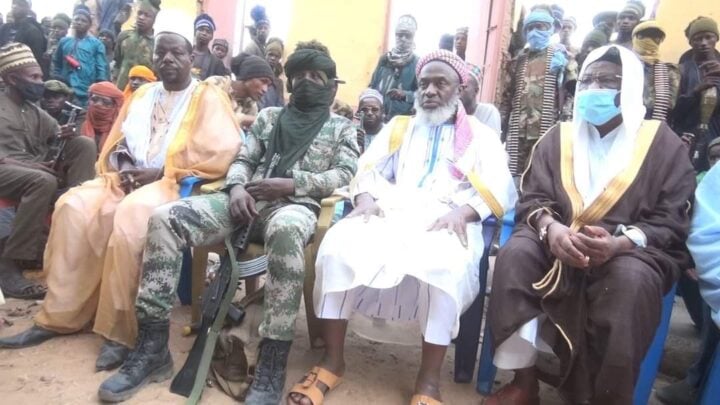The recent abduction of 27 pupils and 15 workers of Government Science College, Kagara, Niger State by armed bandits is another demonstration of the dilapidated state of security in Nigeria and the Nigerian state’s failure to secure the lives and ensure the safety of her citizens. According to news reports, the bandits demand N500m to release the abducted students and workers held in a forest that connects Kebbi, Zamfara, Niger and the Kaduna States. Kaduna-based Islamic cleric Ahmad Gumi is said to be negotiating with the bandits. Niger State Governor Abubakar Bello Sani has vowed to do everything within his powers to ensure the students are released unhurt.
This incident comes at the heels of the heinous abduction of about 400 government secondary school students, Kankara in Katsina State by bandits last December. Many Nigerians scoffed at government claims that it did not pay any ransom for the Kankara boys’ release.
Interestingly, there are no records of any official inquest, arrest or prosecution relating to the Kankara incident. Some of the bandits who carried out the abduction have become media celebrities. Kagara is an expected consequence of Kankara. If Kagara goes the way of Kankara, the stage is set to deify armed banditry in Nigeria and tacitly give it consent as an industry.
Northern Nigeria, especially the Northwest, which used to be the bastion of security and stability, has been hit hard by rural banditry, becoming a more significant security threat to the country than the Boko Haram insurgency. While the terrorists seem more organised and carry out more coordinated attacks, the bandits are a loose bunch of armed criminals operating on a more incredible expanse of territory. They attack villagers daily and keep tens of millions of Nigerians in perpetual fear and angst. About 21 million Nigerians living in Zamfara, Kaduna, Niger, Sokoto, Kebbi and the Katsina States are exposed to insecurity from bandits’ activities.
Advertisement
The incidents of banditry in Northwest Nigeria began as a farmer/herder conflict in 2011. It intensified between 2017 to 2018 to include cattle rustling, kidnapping for ransom, sexual violence, and mass murder. Innocent Nigerians are currently bearing banditry’s scourge in about 35 out of 92 local government areas in the five states.
The problem further exacerbated by the discovery of gold mines, which brought about illegal miners competing to control gold reserves. According to a news report, by March 2020, more than 210,000 people have been internally displaced by the bandits. More than 35,000 refugees have crossed communal borders to Maradi in the Niger Republic seeking refuge.
The bandits are very deadly too. According to the West Africa Network of Peacebuilding (WANEP), from January to December 2019, armed bandits were responsible for more than 1,000 civilian deaths in the Northwest. This figure is more than civilians killed by Boko Haram over the same period (though not more than all those killed, including soldiers and Boko Haram members). In the last decade, more than 8,000 people were murdered in the states of Kebbi, Sokoto, Niger and Zamfara, according to the International Crisis Group.
Advertisement
The armed bandits of north-western Nigeria are hardened criminals taking advantage of geography, illegal mining, inadequate security, ungoverned spaces, and small arms proliferation. It is also related to the vexatious farmer-herder imbroglio.
In Nigeria’s Northwest, we have a vast, rugged, and hazardous terrain grossly under-policed. Some of the forests in this area run alongside the various porous borderlines on the region’s frontiers. The borders are poorly demarcated, under- policed and thus not well-governed. Consequently, there is an abundance of nefarious activities, often facilitated by criminal syndicates.
Most of the country’s poorly governed rural communities, with little or no government presence, are remote. In most of these places, houses are separated by and interspersed with forest areas. This fact renders them vulnerable to banditry, and the situation is made worse by the absence of useful community policing mechanisms capable of addressing the hinterlands’ peculiar security challenges.
Some bandit attacks are rooted in decades-long competition over resources between herders and farming communities. The nomadic herders sometimes get in deadly clashes with farmers, which leads to the formation of armed self-help groups, called vigilantes, by both the farmers and herders for protection.
Advertisement
In some instances, these herders, initially armed to protect their cattle, often use their guns and ammunition for criminal activities, especially kidnapping, which is more lucrative than herding. While a big cow can fetch about N200000 in the market, one successful kidnapping can fetch tens of millions of Naira. This is the economic incentive to banditry.
Allegedly, the bandits based in North west forests are the latest to join Nigeria’s lucrative kidnap for ransom industry and are the most daring in their operations. Kidnapping for ransom is widespread in Nigeria, but the bandits seem to have redefined it. Between 2017 and 2018, they organised themselves into more than 20 different groups who perpetrated more than ten daily kidnappings in the central road connecting Abuja and Kaduna. Since last year, they entered another level, targeting schools and abducting many students. They draw local and international attention as they negotiate with government authorities for the release of their abductees.
Last year, their crass brazenness became apparent when they attacked President Buhari’s home state of Katsina, just as the president was visiting for a vacation. They had already killed more than 100 people in Katsina in attacks between April and June 2020.
The Kagara incident and prevalence of rural banditry in northwest Nigeria raises fundamental questions about the government’s ability to govern effectively. The state security machinery has so far failed to tackle the scourge of banditry. At the same time, it is understandable that the prevailing socio-economic existential conditions in Northwestern Nigeria complicate the area’s security situation. Some Nigerians assume that the government is waving a white flag in the face of bandits’ criminal activities.
Advertisement
I suggest that the federal government should adopt a kind of carrot and stick approach to bringing the problem of banditry to an end. On the carrot side, there should be a recognition that some of the factors that lead to banditry include youth unemployment, poverty, and inequality. The government should strive to build trust with local communities by addressing the structural inequalities that drive people to violence – poverty, a lack of education and opportunity and government ineptitude at various levels.
This solution only works when government ensures that critical infrastructure like roads, clean water, schools, and hospitals are in the local communities. Those who genuinely want to thrive should have the opportunity to do so.
Advertisement
On the stick side, the government must decisively deal with the bandits. Criminality is unlawful and should be treated according to the provisions of our laws . The crucial issue is the the reassertion of the supremacy of the Nigerian State in the control of the power of coercion. Sovereign power is never shared with non state actors.
In 2019, the governors of Katsina, Sokoto, and the Zamfara States agreed on a peace deal with the armed bandits, which involved disarmament, the release of kidnapped victims, and an amnesty for the bandits. A Northern state governor shocked many Nigerians when he appeared in a photo standing next to a bandit wielding an AK-47 rifle, justified the deal by stating that negotiation was the best way to achieve lasting peace. Expectedly, the agreements did not survive as the bandits reneged on the terms of the contract.
Advertisement
The bandits are simply criminals taking advantage of our security and institutional failures to terrorise the populace and enrich themselves in the process. They should not be “treated with kid gloves”. When the criminals get public recognition and some leaders try to justify or pamper their odious criminality and possibly reward them financially as the government allegedly did over the kankara incident , they get more brazen and try to hold the country to ransom.
Most criminals lack moral compulsion and negotiating with them is useless as criminals are not known to keep to agreements. It is always dangerous to allow kidnappers of innocent school children to glamourise their evil deeds, as has been happening recently. This inspires other wannabe abductors to plan and execute the next despicable ‘soap opera’, where a part of actors (bandits) gets money and fame. The other part (victims and their families) lives a life of pain and anguish.
Advertisement
Some bandits have sponsors and collaborators in low and high places. They should be exposed and prosecuted accordingly.
More coordinated efforts by the local authorities and security forces are needed to curtail banditry. This also brings to the table the question of state police. The affected state governments should forge a common front in dealing with the problem. The federal government should put forceful inland and frontier policing to deal with the peculiar circumstances of various borderlines, forestlands, and the Northwest’s hinterlands.
The government’s current counter banditry effort has not been impactful because of the operational challenges arising from insufficient terrain knowledge. It is essential to engage local vigilantes and community watch groups who better understand the terrain.
What is required is a tactical synergy between grassroots vigilantes and the state security operatives. The bandits are a transnational syndicate of renegade nomads who know the forest very well. No amount of military deployment can check their activities without the locals’ involvement through the vigilantes. The vigilantes are the ones who know the terrain and the people and know when bandits are around the corner.
The vigilantes should undergo rigorous training and be under constant supervision to guard against possible excesses and abuse. Overall, emphasis should be put on grassroots policing, enriched by local personnel and intelligence.
The Civilian Joint Task Force, which comprises local vigilantes and volunteer neighbourhood watchers, has been useful in combating the Boko Haram insurgency in the lower Lake Chad Basin. This fact shows community policing’s possible value and should be modified and deployed to tackle armed banditry and herder issues.
Nigeria must secure its borders. Some of the bandits are from neighbouring countries. It is a well-known fact that our borders are porous, and the vast forest reserves in the border regions have become operational bases for the bandits.
Nigerians expect the government to solve the insecurity problem. Although citizens have their role to play, the bulk of the responsibility to provide security stops at the government table (executive, legislature, and judiciary).With new service chiefs’ appointment, Nigerians expect security improvement and will not accept anything less. The farce played by government by claims and counterclaims of release of kidnap victims harms its reputation. Progress report is needed now more than ever to calm the frayed nerves of Nigerians.
I call on the executive and legislative arms of government to call for a “war against insecurity”. They must channel adequate resources, both human and material, to end this scourge. The federal government must efficiently coordinate this security effort, and all leaders, including the opposition party leaders, must work together to improve the situation. Now is not the time to score cheap political points whilst our country burns. We must save our country from this tragedy.. We must save ourselves from ourselves!
Views expressed by contributors are strictly personal and not of TheCable.







